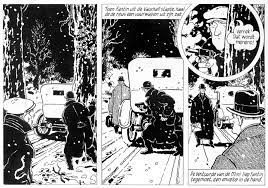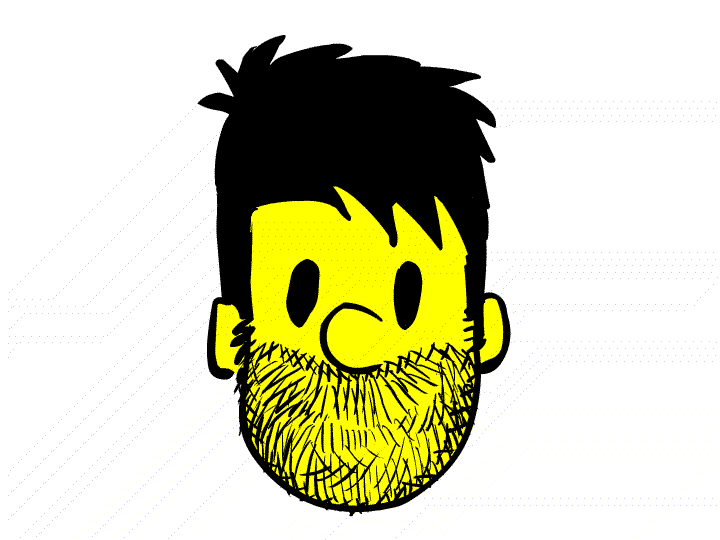Bernie Fuchs.
1932/2009
Not really sure what to say about him that would be different from anybody else’s point of view.
The man was THE man. The legend AND the stuff legends are made of.
The enfant terrible of illustration in the late 50’s, all throughout the 60’s and till the slow death of print illustration in the 70’s. I know, Illustration is not dead, far from it, but THIS format of magazine art, the way it was done, commissioned, paid for, the world that went with it is a piece of history now. For better or for worse.
When I discovered the first image in this post I was blown away. I was instantly charmed.
The longer I looked at it the longer I was mesmerized. Fuchs had started in the 50’s, working in car ads in Detroit. The job was very specific. There were strict rules. Someone usually did the car and another artist would do the characters. The poses were clear, clean, behind the car.
It was all very staged, all very efficient.
Fuchs was probably drinking beer or something at the time and asked someone to hold It for him while he went about to completely dismantle this system, going into the streets to capture everyday life, placing people in Front of the cars, overall stepping all over the established codes of the time.
He was both admired for it and called a prima Dona for it.
He didn’t last in Detroit.
Moved to New York and started getting jobs for Mc Call and other well known magazines at the time. The bigger leagues. He was the kid who started taking jobs away from the older, more established artists, and he did it with a smile from what I read.
His work was new, different. It felt alive. The characters weren’t as stiff as they used to be in previous illustrations, there was a looseness to the brush work. Everybody wanted to have him work on their campaigns and every illustrator wanted to be him.
I look at his work. Not as often as I used to when I was younger.
I look at it to remind myself that people can draw and paint like this, can tell such strong stories in one images and can push themselves constantly to come up with new ideas, new themes, new compositions
Toward the later part of his career, after being incredibly well established, Bernie started experimenting with new techniques, new approaches. This body of work is not often the one that people remember the most but I love seeing his brain at work. Having the courage to leave behind what is a sure success to try something new, untested, unproven, knowing that it could very well be rejected is inspiring.
That is the other thing about Bernie Fuchs.
He was inspiring. He still is.
Wednesday, October 18, 2023
Bernie Fuchs
Tuesday, June 13, 2023
Theodore Pousin
Theodore Poussin by Frank Le Gall.
Theodore Poussin was one of these stories that appeared in Spirou and right off the bat I was mesmerized by the art work. The first page especially. It was a building on a dark evening, the trees had no leaves, there were boats in the back, and I could tell the ground was wet, or felt wet because of the reflection of the building.
It had a very Belgian tradition of being curvy lines rather than a straight edged rendition but something made me pose.
It felt…solid? There was a sense of space that caught my eye.
The writing was also inviting. Something about a person looking over the paperwork of boats coming from all over the world and dreaming of traveling to these places.
At that time in my life, I felt stuck where I was( High school days!) and that story was an invitation to dream travel.
I kept reading the story and it kept getting better.
It took me a minute but I realized what I was responding too was how the author would create interesting shots. There was a panel of the main character walking on the boat and I felt there. I wanted to be there.
It became a game for me, to look for all the interesting shots in the story. MORE than reading the actual story, seeing how it was set up was fascinating because it was a big nose graphic novel doing very cinematic things with the storytelling.( Ok this is ADULT me analyzing this, at the time I don’t think I had the words to articulate these thoughts, I just saw cool shots).
Eventually,I read the books more for the way the story was told, then the stories themselves.
I re read the books a few years ago and realized I remembered almost nothing of it. It was a pleasant surprise because the stories are really good.Gosh, I feel horrible saying this because as a storyteller I want people to respond to the stories as well as the art. Interesting that even as an adult with decades of experience in the industry I still get surprised by how I approach certain things.
Theodore Poussin is an adventure story that is filled with mood, hot nights, busy ports, rainy ships and Intrigue.
Something I did really appreciate re reading the books is to see how the creator made the character evolve, age, mature through the books. He is aware of the adventures he’s had before and what it has done to him.
Saturday, June 10, 2023
Jacque Tardi
Jacque Tardi
Growing up in France( mostly), Art was everywhere. I was interested in Graphic novels so I looked at everything I could. Not always understanding what I was looking at. Not always realizing the impact it had on me. Some of the books I liked a lot have left very little mark on me.
Other books made a huge impact on me but it is only as an adult that I realized how much.
The work of Jacque Tardi is this second kind.
I would see his take on Nestor Burma in the pages of “A Suivre” and never read them.
It was gray. Dark, there was an inherent sadness seeping through the pages. Something about a world where people got the short end of the stick and knew about it
Tardi captured an essence of what French Life was like, away from the glamour of the Rivera or the lights of the Champs Elyse. This was NOT Louis De Funes.
It was all about small streets, rainy weather, cheap motels, the other side of the tracks. Literally!
The number of images depicting industrial warehouse by train tracks, around the Paris area are innumerable in my mind’s eye.
I never EVER understood the stories. I don’t think my 12 year old brain was experienced enough to relate to the seemingly depressed mood permeating this world, and why people did what they did because they always seemed sad in the end
No matter what the outcome was.
BUT
The artwork!!! It was palpable. The smell of rain, the feeling of long, cold winter Sunday afternoons in a city. The mood of the nights, the smell of alcohol and cigarettes( which every French kid knew since it was EVERYWHERE , the smell of hard wood floor and worn out leather. The scope of the relationships. So human you could see it on the page.
The drawings were simple, clear. They were deliberate.
I didn’t find them pretty, but it was clear they were MEANT to be this way. They WROTE the feelings.
This is something I LOVED about Tardi's work. he didn't seem to care if he made pretty drawings or not. They just needed to say something.
I collected everything I could find of his and barely read any. I would make my own trips in his world. It was that powerful.
Much later, Tardi started doing books on World War 1. Memories of his father who had served.
The French perspective paralleled with the German perspective. Just like his Burma days, there was nothing pretty about it. It was gruesome, cold, and it felt real.
The people spoke the way people speak in the street. They looked like real people, they drank, lived and die without pizzaz.
I find his later work to be some of his stronger works.
His art is visual writing.
It is not for everyone, I understand this. It is probably an acquired taste I didn’t ask for, but I love seeing his work and try to read/watch everything he comes out with.









































































